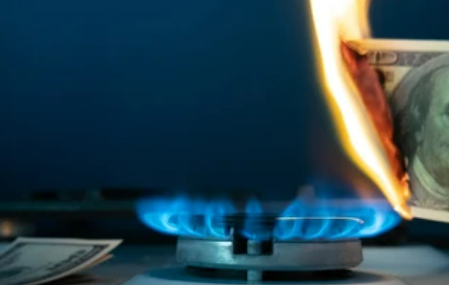
Skylar Williams
Dec 01, 2022 11:21

The head of energy for the European Union defended the bloc's proposal to cap gas prices on Wednesday and announced that countries will discuss possible adjustments in response to concerns from EU member states.
The European Commission suggested a price cap last week that would go into effect if the front-month Title Transfer Facility gas price exceeded 275 euros per megawatt-hour for two weeks and was 58 euros higher than the reference price for liquefied natural gas for ten days. This comes after months of infighting inside the EU over whether or not to cap energy costs.
Countries in favor of a gas price cap to reduce citizens' high energy bills attacked the EU's proposal, with Poland's energy minister labeling it "a joke" and analysts saying it would never be implemented due to its onerous conditions.
EU Energy Commissioner Kadri Simson stated at a Politico-hosted event in Brussels, "It was not our objective to propose something that would never be implemented."
As a result of Russia's invasion of Ukraine, gas prices in the EU have surged this year, yet even a record price increase in August would not have triggered the EU's planned limit.
"Now we must consider how long we are willing to wait if a similar occurrence occurs again. Have we the time and the fortitude to wait two weeks? Is it a week? Is the time span shorter?" Simson declared.
Diplomats from EU member states will evaluate the proposal on Friday with the intention of negotiating a final version for energy ministers to approve at an emergency meeting on December 13.
The EU has previously approved a variety of steps to improve the energy situation, including gas storage filling conditions that have allowed countries to approach winter with full storage caverns.
However, limitations on gasoline prices have split the 27-nation bloc. While Italy, Spain, Belgium, Malta, and Greece criticized the proposed cap as being excessively high or unlikely to ever go into effect, Germany and the Netherlands are wary of regulating gas prices, warning that this could discourage suppliers from transporting Europe's desperately needed gas.
The proposal from the Commission would suspend the cap in the event of a fuel supply shortage.

Dec 01, 2022 11:09

Dec 02, 2022 14:08